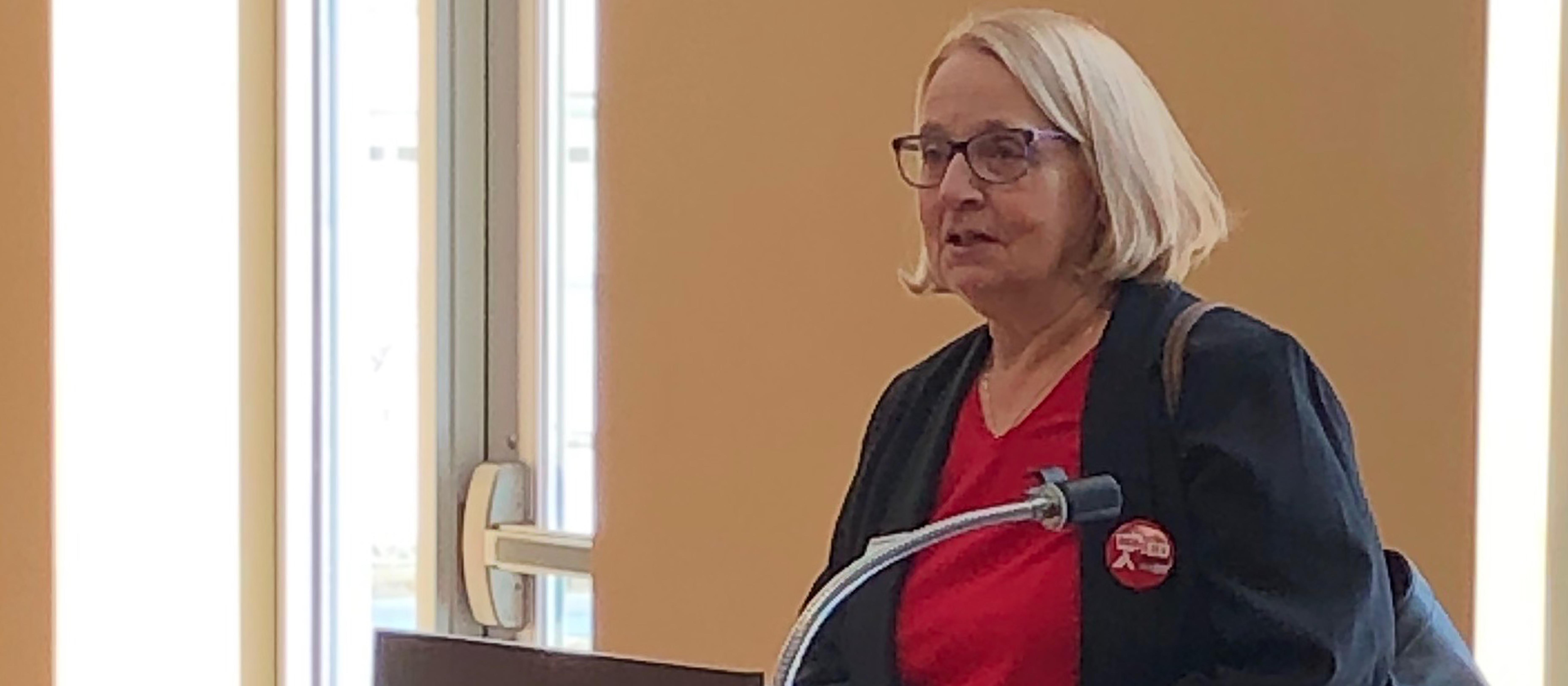The following is testimony prepared by MEA President Grace Leavitt:
Senator Millett, Representative Kornfield, and esteemed members of the Committee on Education and Cultural Affairs,
My name is Grace Leavitt. I am a high school Spanish teacher, National Board Certified, on leave from MSAD #51 to serve as President of the Maine Education Association.
I am here today to testify in opposition to LD 589, “Resolve, Directing the State Board of Education to Adopt Rules Prohibiting Teachers in Public Schools from Engaging in Political, Ideological or Religious Advocacy in the Classroom”.
The definition of the word “irony”: “the use of words to convey a meaning that is the opposite of its literal meaning” (Dictionary.com).
It is incredibly ironic that this proposed legislation is clearly based on strongly biased views of a particular ideology. It clearly is aimed at suppressing the expression of all other opposing views.
Quite ironic.
On behalf of my fellow
To begin, who will define, without any room for error, what is to be considered a ‘controversial subject matter’? Especially now, truly any matter could be considered ‘controversial’ by someone. It does say that a ‘controversial issue means an issue that is a point made in an electoral party platform at the local, state or federal level’; doesn’t that just about cover any and all issues, especially if we are including any and all parties, which, of
And what even is the definition of ‘political’? Isn’t everything, and I do mean everything, now political in some way? (By the way, one of the definitions given is “of or relating to citizens”—I would say that does cover any and all subjects.) Or who determines what is “germane” to a subject that is being taught?
Works of art and music and literature, historical and, most certainly, current events, a whole range of topics in the sciences—all ‘controversial’, all ‘political’. In my Spanish
I am left wondering—dare I
A few years ago, we were reviewing a grammar exercise on the use of the subjunctive mood. Unbeknownst to me, a student made some comment—I never heard it, only heard some murmurs. The next day a parent was at my classroom door, raising her voice and accusing me of criticizing her family’s religion. It seems that the student—whom I hadn’t heard—made a remark about a particular religion, knowing that another student in the class was of that faith, and the child reported it to her parent, who then was accusing me of bias, and so on
Maybe that’s not the best example, but it shows how easily a teacher could be accused even when not teaching a “controversial issue”.
This proposed legislation would create a climate of fear—fear that someone might misinterpret what I say, or how I say it, or perhaps even just the expression on my face; fear that my prodding my students to think for themselves, asking a question, playing ‘devil’s advocate, could be interpreted as my pushing my opinion; fear that I could be accused of violating this ‘law’, and what recourse would I have to combat that accusation? So rather than risk any of that happening, of me potentially losing my job, even my career,
What a horrible disservice to our students. Maine’s Guiding Principles for the Learning Results state that we want our students to become informed and engaged citizens and to become critical thinkers. This legislation would accomplish the exact opposite of that. And it would greatly erode the very human nature of teaching. This legislation is nothing less than harmful to our students’ learning. It would instill a pervasive fear in classrooms—teachers cannot teach in such a climate, nor can students learn in a climate of fear
As for a “code of ethics”—I am sharing the Code of Ethics from both our national association, the National Education Association, as well as the version we adopted in Maine. Again, it is hard not to feel resentment towards this resolve indicating that we are in need of a “code of ethics”.
I have one question that lingers: if what this resolve purports to have been happening in schools had indeed been happening, then wouldn’t all of our
I vigorously urge you to oppose LD 589




